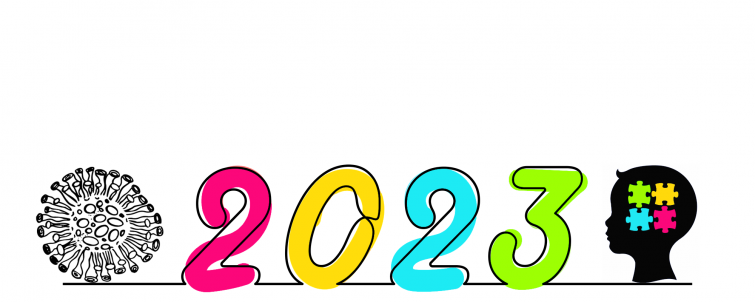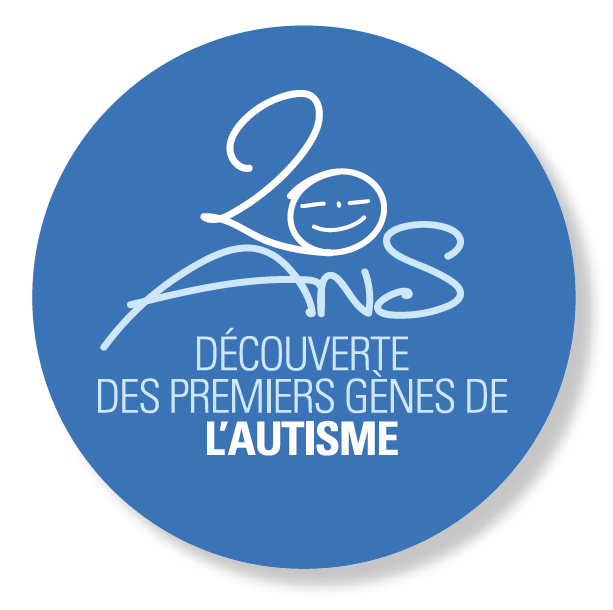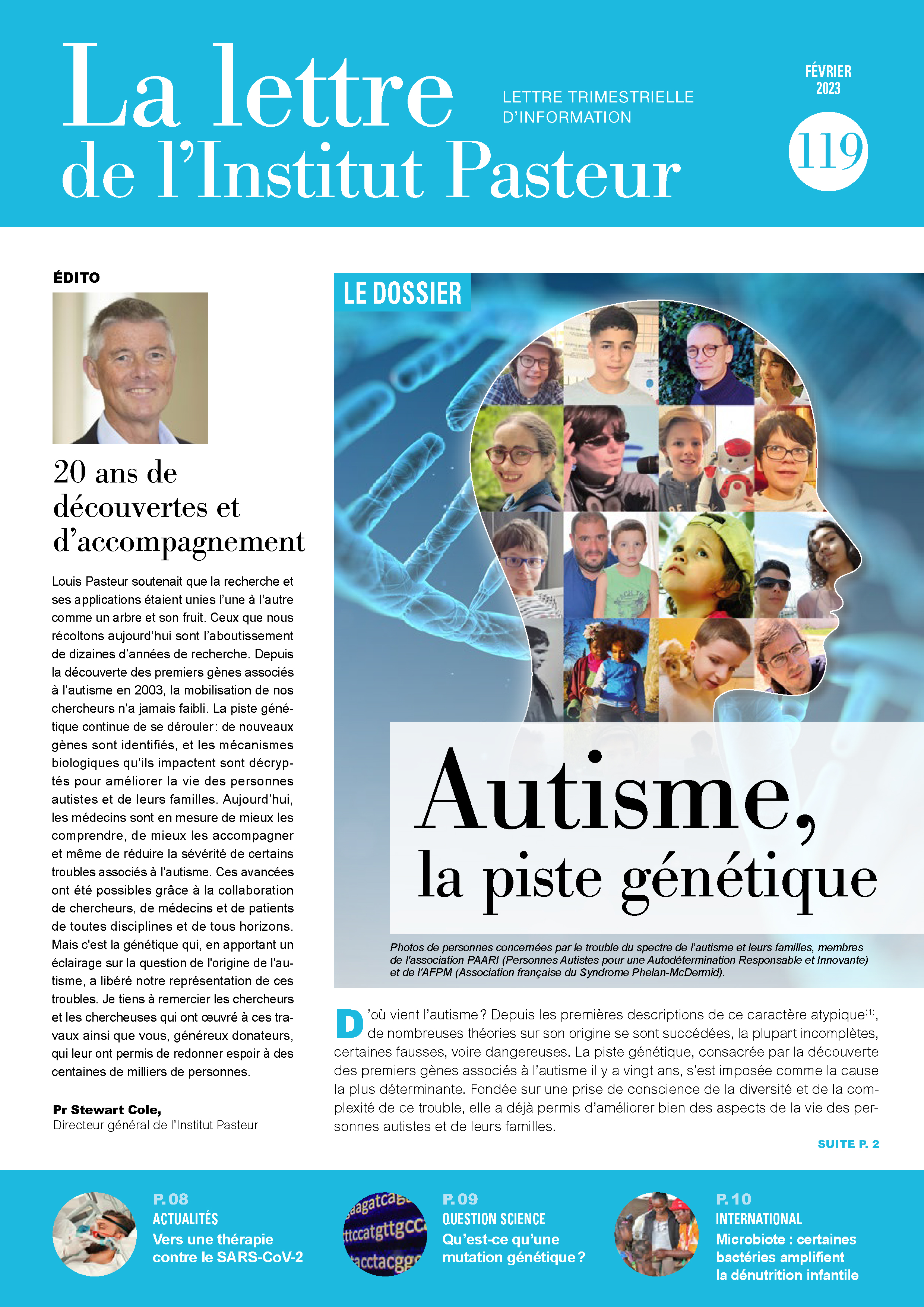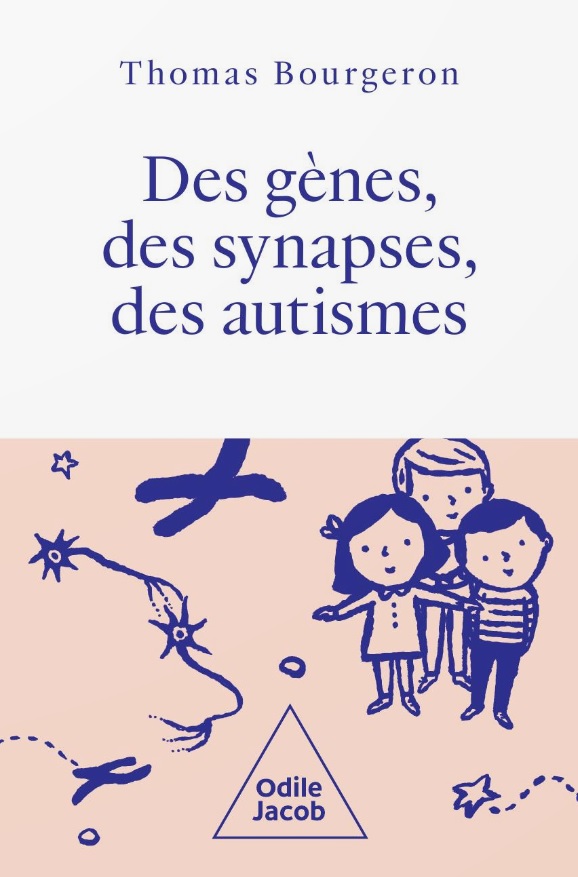
 Anniversary
Anniversary
2023: a year of great Pasteurian discoveries to celebrate
After the commemoration of Louis Pasteur's bicentenary in 2022, the year 2023 will also be a year full of celebration. We will particularly be focusing on two major Pasteurian discoveries of great significance for science and society: 40 years since the discovery of HIV and 20 years since the discovery of the first genes associated with autism. This is an opportunity for the Institut Pasteur to celebrate its successes and its scientists and also to boost its visibility, with several events and initiatives throughout the year. Make sure you check out the newsletter for regular updates!
In today's issue we will present some initiatives that took place recently to mark the anniversary of these historic discoveries – the first highlights to kick off a year that will celebrate and showcase the power of science:
- 40 years since the discovery of HIV
February 4, at precisely 5.45pm to mark the exact moment – you may well have seen this post on the Institut Pasteur's social media pages celebrating the first images of HIV-1 taken by Charles Dauguet in 1983.
The post was the start of a year of celebrations to mark the discovery – feel free to keep liking and sharing it via the Institut Pasteur's Facebook, Twitter, Instagram, LinkedIn pages.
Other publications will follow on from this first post, together with some major events and a host of other initiatives. The commemorations are now officially up and running – stay tuned to the newsletter and the Institut Pasteur's social media to find out more soon!

Crédit : 1983, Institut Pasteur - photo Charles Dauguet - couleurs Jean-Marc Panaud
- 20 years since the discovery of the first genes associated with autism
This second major discovery by the Institut Pasteur's teams will also be celebrated this year, and several initiatives have already taken place.
A dedicated graphic identity for the occasion

An official label and a graphic standard have been developed to mark the 20th anniversary of the discovery of the first autism genes. The label will be included on various communication materials and platforms that mention the anniversary to ensure complete clarity and coherence between this special graphic identity for the event and the Institut Pasteur's visual identity.
The circular design and the use of a stylized face for the "0" of "20" symbolize the human and social dimension of autism spectrum disorder, now reflected in the support offered to families and children from a very young age.
Publication of the 119th issue of the "Lettre de l'Institut Pasteur": Autism – following the genetic lead

The latest issue of the quarterly newsletter for Institut Pasteur donors – the "Lettre de l'Institut Pasteur" (LIP) – contains a special feature on the genetics of autism to mark the 20th anniversary of the discovery of genes associated with the disorder.
Where does autism come from? Ever since the first descriptions of this atypical behavior, there has been a succession of theories about its origins. Most of these have been incomplete, some false and some even dangerous. Following the discovery of the first genes associated with autism 20 years ago, genetics is now widely accepted as the most significant cause. Our knowledge of the genetic basis of autism, rooted in an awareness of the diversity and complexity of the disorder, has already led to improvements in many aspects of the lives of autistic individuals and their families.
Find out more and read the report in full
All the various divisions, departments and units have received copies of this new issue.
Please contact Flore Gaillard (flore.gaillard@pasteur.fr) if you require additional copies.
Publication of the book Des gènes, des synapses, des autismes: Un voyage vers la diversité des personnes autistes, by Thomas Bourgeron
 In his book published in January by Éditions Odile Jacob, Thomas Bourgeron and his team delve into DNA in a fascinating investigation in search of the genes associated with autism (or to be more precise, the genes associated with the diversity of people with autism).
In his book published in January by Éditions Odile Jacob, Thomas Bourgeron and his team delve into DNA in a fascinating investigation in search of the genes associated with autism (or to be more precise, the genes associated with the diversity of people with autism).
The newsletter team will keep you informed of all the upcoming events and highlights to mark these celebrations. Make sure you don't miss an issue!